On-Demand Outsourcing BPO Services for Healthcare Providers With 24/7 Coverage!
Save up to 70% on staffing costs!
Browse Specialty Staffing Services
What Is the Role of a Medical Scribe in Clinical Settings?
Whether you’re jumping between patient rooms or staying up late trying to finish documentation, it’s draining. That constant pressure to keep up with SOAP notes, EHR clicks, and billing details can chip away at your focus, your time, and even your well-being. Key Takeaways Medical scribes handle real-time documentation during patient visits. They free up providers from hours of charting and reduce burnout. Clinics benefit from improved efficiency, accuracy, and patient satisfaction. Staffingly, Inc. offers HIPAA-compliant, trained virtual and AI-powered
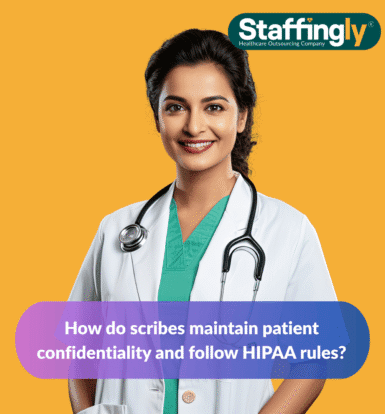
How do scribes maintain patient confidentiality and follow HIPAA rules?
patient privacy and how scribes (especially virtual or AI ones) stay HIPAA-compliant. But here’s the twist: it’s not just about “staying compliant.” It’s also about how that compliance helps you run a smoother, safer, and less stressful practice. Because if you’ve ever stayed late doing charting or worried about data breaches, this one’s for you. Key Takeaways HIPAA-compliant scribes protect patient data using secure systems and strict protocols. They help reduce burnout by handling documentation safely, so you don’t have
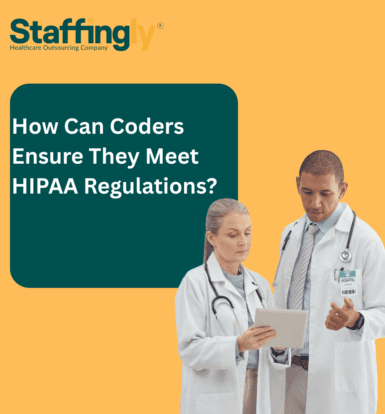
How Can Coders Ensure They Meet HIPAA Regulations?
Whether you’re coding inside a clinic, from a remote setup, or working with a trusted outsourcing partner like Staffingly, Inc., one thing stays the same: protecting patient information is a legal responsibility—under HIPAA, it’s non-negotiable. As a coder, you handle sensitive patient data every day—diagnoses, procedures, insurance info, and personal identifiers. That’s all classified as Protected Health Information (PHI), and mishandling it (even unintentionally) can lead to major fines, legal action, or even job loss. Related HIPAA Facts for Coders:
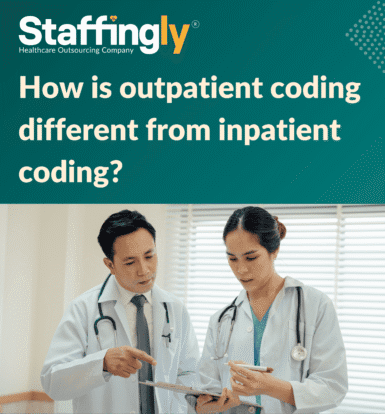
How Is Outpatient Coding Different from Inpatient Coding?
But if you’re working in healthcare—especially on the admin, billing, or provider side—it’s something that can either make or break how smoothly your revenue cycle runs. So, if you’ve ever wondered, What’s the big deal between inpatient and outpatient coding? I’ve got you. We’re not just talking definitions here—we’re getting into how it helps, why it matters, and what the real-life benefits are for you and your team. Key Takeaways Inpatient coding is used for hospital stays over 24 hours
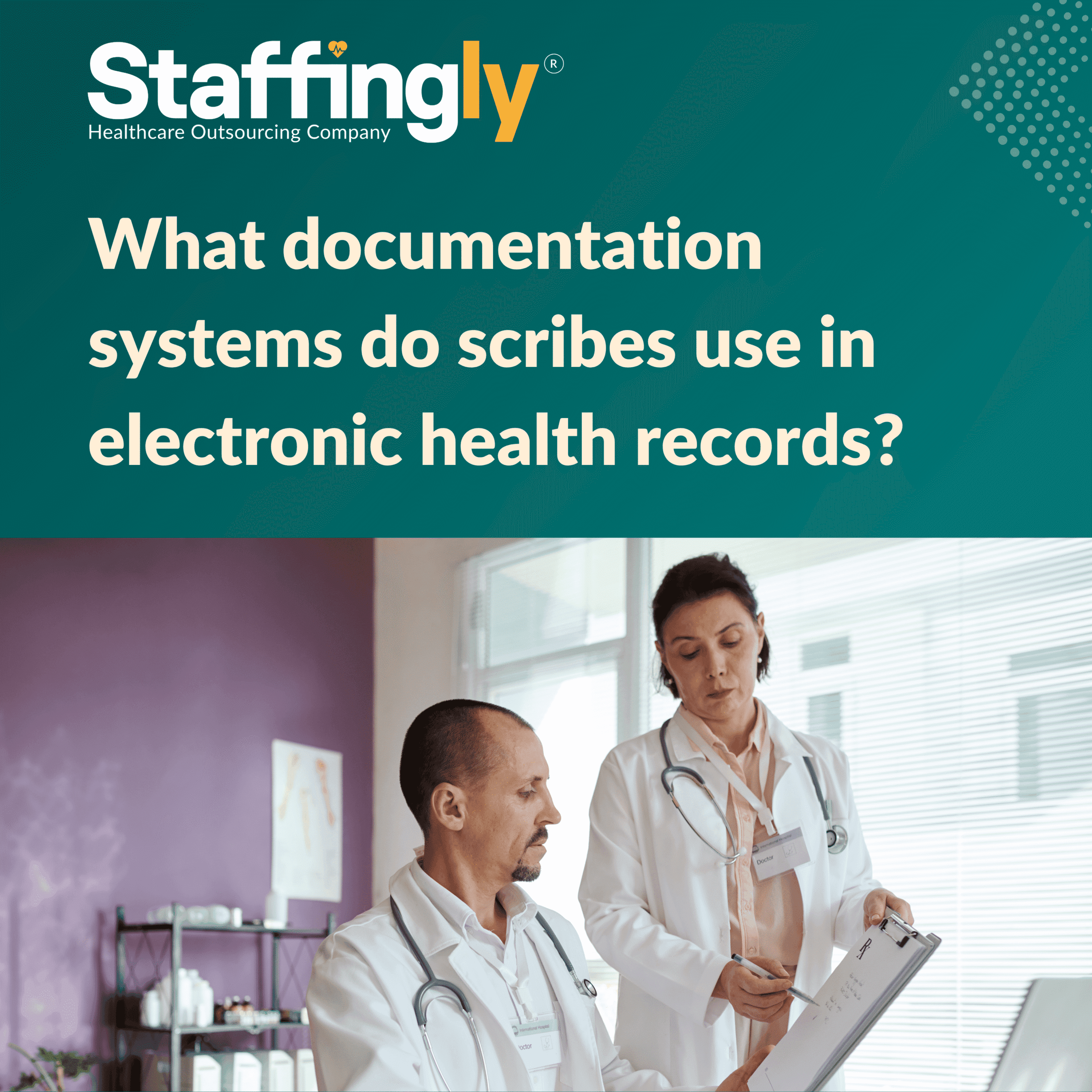
What documentation systems do scribes use in electronic health records (EHR)?
Ever wonder what tools medical scribes actually use while they’re shadowing a provider and documenting in real time? It’s not just a notepad and a good memory. Most medical scribes work directly inside Electronic Health Record (EHR) systems—and they need to know exactly where, how, and what to chart. If you’re a provider or practice manager considering a scribe (or outsourcing one), it helps to understand what systems they use and how they make documentation more efficient and compliant. What
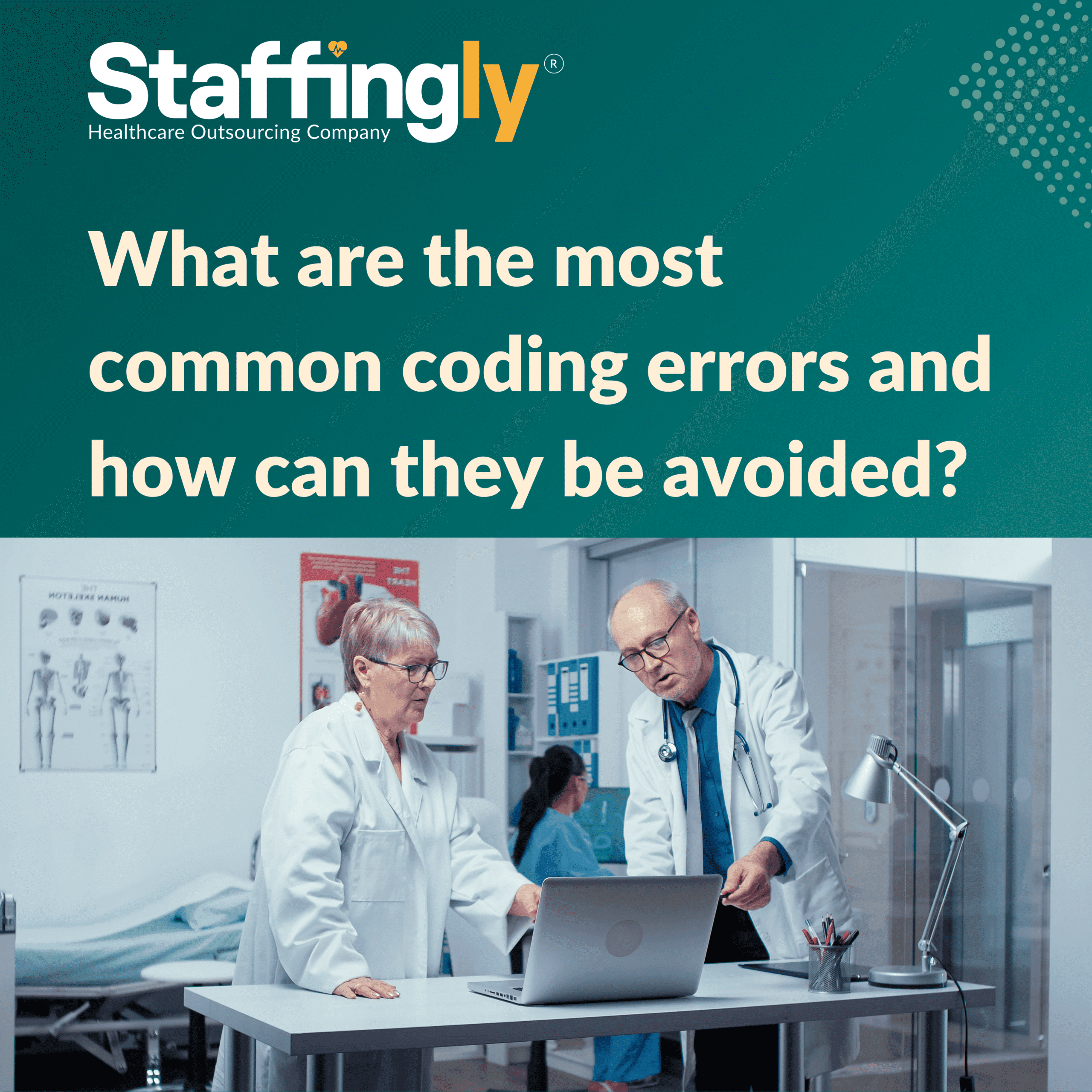
What are the most common coding errors and how can they be avoided?
Medical coding is a critical part of healthcare administration, ensuring accurate billing and fast reimbursement for services rendered. However, even the most experienced coders can make mistakes, and these mistakes can lead to claim denials, delayed payments, and even compliance issues. But don’t worry—understanding the most common coding errors and learning how to avoid them can save your practice a lot of time, stress, and money. Incorrect or Missing Diagnosis Codes (ICD-10) The Issue: One of the most frequent mistakes
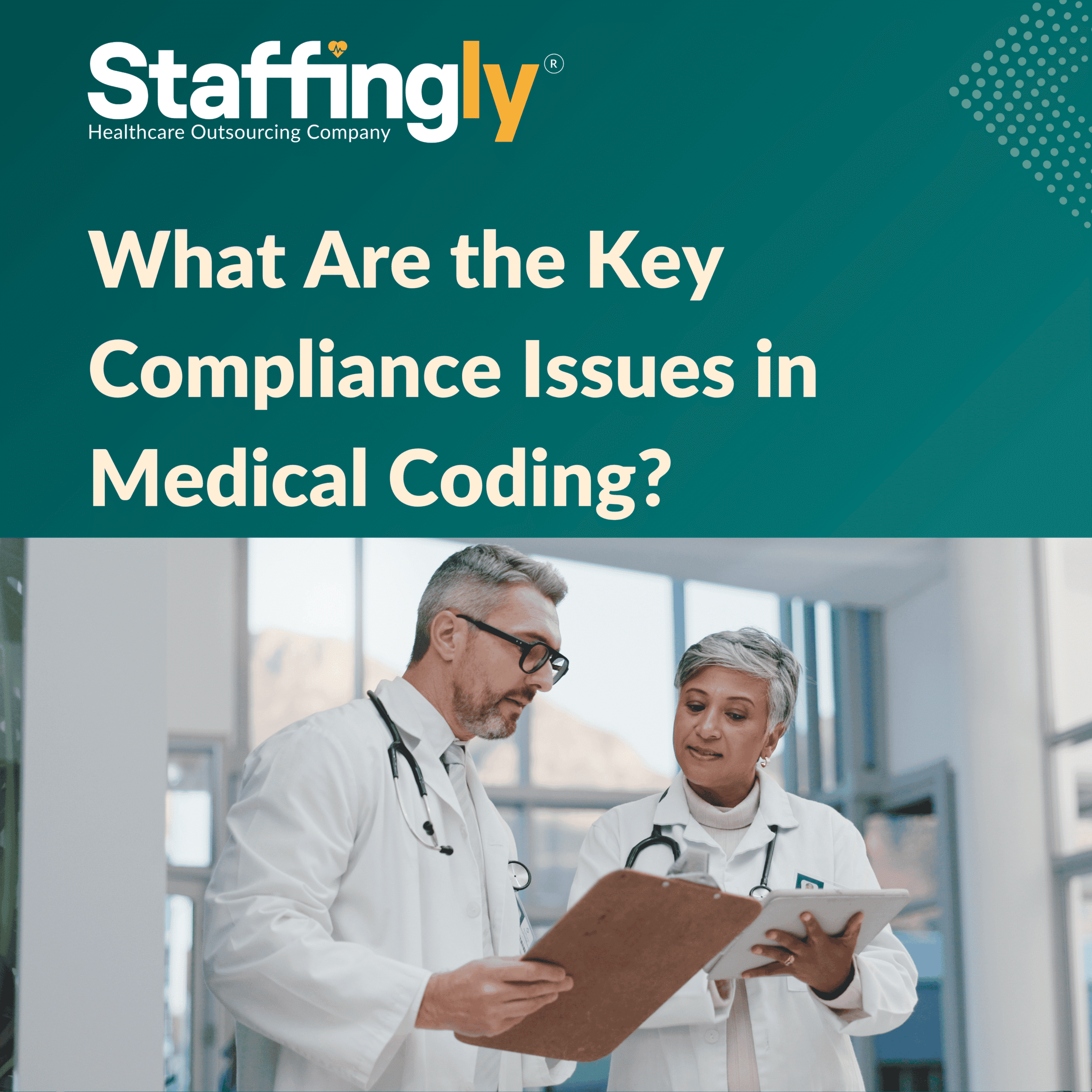
What Are the Key Compliance Issues in Medical Coding?
If you’re a healthcare provider, staying compliant in your coding isn’t optional—it’s critical. One wrong code, one missed modifier, or one outdated billing practice could land you in trouble with payers—or worse, with federal auditors. So today, let’s walk through the key compliance issues you need to watch out for, the benefits of doing it right, how compliant coding is used every day in your practice, and how Staffingly, Inc. helps keep you on track. What Is Coding Compliance? At
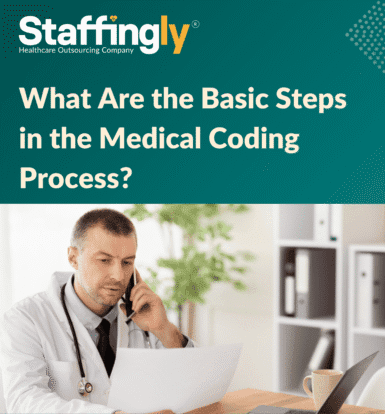
What Are the Basic Steps in the Medical Coding Process?
Medical coding is the backbone of your healthcare practice’s revenue cycle. It might seem complex, but breaking it down into simple, manageable steps can help you understand why it’s so important for your bottom line. Whether you handle it in-house or outsource to experts like Staffingly, Inc., knowing how medical coding works is essential for smooth claims, faster payments, and proper patient documentation. Key Takeaways The medical coding process may seem complicated, but when broken down into these steps, it’s
 Book a Demo to Build Your Team Today!
Book a Demo to Build Your Team Today!


 Read Case Studies
Read Case Studies 



 Virtual Medical Assistants
Virtual Medical Assistants



